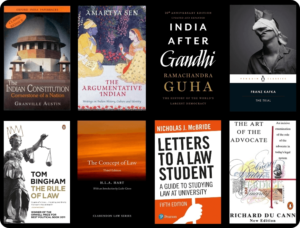
India has a rich legal tradition that spans thousands of years and has evolved to reflect the country’s history, culture, and values.
From the ancient texts to the modern Constitution and legal system, Indian law has been shaped by a diverse range of influences, from religion and philosophy to politics and economics.
In this blog post, we will explore eight essential books for lawyers and law students in India, and highlight their key lessons and quotes.
1.The Indian Constitution: Cornerstone of a Nation by Granville Austin
The Indian Constitution is one of the most important documents in the country’s history, and Granville Austin’s book provides a detailed and insightful analysis of its origins, principles, and impact.
This book is essential reading for law students and lawyers seeking to understand the Constitution and its role in shaping Indian democracy and society.
Key takeaways from this book include:
- Understanding the historical and political context of the Constitution, including the influence of leaders like Nehru and Ambedkar
- Familiarity with the key provisions and amendments of the Constitution, including the Preamble, Fundamental Rights, and Directive Principles of State Policy
- Appreciation of the challenges and debates around the interpretation and implementation of the Constitution, including issues of federalism, secularism, and social justice
- Importance of the Constitution in protecting and promoting human rights, and ensuring a democratic and inclusive society
One short quote from this book that captures its importance is:
“The Constitution of India is not a mere legal document, but a social charter, a symbol of the aspirations of the people of India.”
2.The Argumentative Indian by Amartya Sen
The Argumentative Indian is a fascinating and engaging book by Amartya Sen that explores the intellectual traditions and debates of India, and their relevance to contemporary issues.
This book is important for law students and lawyers seeking to broaden their perspectives and critical thinking skills and to understand the role of culture and philosophy in shaping legal and political discourse.
Key takeaways from this book include:
- Understanding the diversity and complexity of Indian culture and philosophy, and its relevance to contemporary debates around identity, democracy, and development
- Appreciation of the role of reasoning and debate in Indian intellectual traditions, and its importance for democratic societies
- Importance of engaging with different perspectives and ideas, and fostering a culture of dialogue and open-mindedness
- Awareness of the challenges and opportunities of globalization and cultural exchange, and the need to balance local and global perspectives
One short quote from this book that captures its message is:
“The spirit of India is the spirit of inquiry, the spirit of tolerance, and the spirit of democracy.”
3.India After Gandhi by Ramachandra Guha
India After Gandhi is a comprehensive and engaging history of India from 1947 to the present and provides valuable insights into the political, social, and economic challenges and opportunities facing the country.
This book is important for law students and lawyers seeking to understand the broader context of Indian democracy and development and to appreciate the role of law and governance in shaping the country’s trajectory.
Key takeaways from this book include:
- Understanding the legacy of British colonialism and its impact on Indian society and politics
- Appreciation of the struggles and achievements of India’s leaders and citizens in building a democratic and diverse society, and addressing the challenges of poverty, inequality, and conflict
- Importance of institutions and governance in shaping the trajectory of Indian development, and the need for accountability and transparency in public life
- Awareness of the challenges and opportunities of globalization and technological change, and the need to balance economic growth and social justice
One short quote from this book that captures its message is:
“The story of India after Gandhi is the story of a vibrant and diverse democracy, struggling to fulfil its promise of freedom, equality, and justice for all its citizens.”
4.The Trial by Franz Kafka
The Trial is a classic novel by Franz Kafka that explores themes of justice, power, and alienation.
This book is important for law students and lawyers seeking to understand the complexities and limitations of legal systems and to appreciate the human dimensions of legal cases and decisions.
Key takeaways from this book include:
- Understanding the power dynamics and institutional structures that shape legal systems, and the impact of these systems on individuals and society
- Appreciation of the emotional and psychological toll of legal cases on those involved, and the need for empathy and compassion in legal practice
- Importance of due process and fair trial in ensuring justice and protecting human rights, and the dangers of arbitrary power and legal nihilism
- Awareness of the limitations and contradictions of legal language and reasoning, and the need for critical reflection and ethical judgment in legal practice
One short quote from this book that captures its message is:
“Justice is inaccessible. It belongs to what is distant, what is unknown, what is unknowable.”
5.The Rule of Law by Tom Bingham

The Rule of Law is a seminal work by Tom Bingham that provides a comprehensive and accessible account of the principles and values underlying the rule of law, and its importance for democratic societies.
This book is important for law students and lawyers seeking to understand the conceptual and practical dimensions of the rule of law and its role in shaping legal systems and institutions.
Key takeaways from this book include:
- Understanding the core principles and values of the rule of law, including equality, fairness, and predictability
- Appreciation of the importance of an independent and impartial judiciary, and the need for effective legal remedies and procedures
- Importance of transparency, accountability, and the rule of law in ensuring good governance and combating corruption
- Awareness of the challenges and threats to the rule of law, including authoritarianism, populism, and terrorism, and the need for vigilant defence of its values and principles
one short quote from this book that captures its message is:
“The concept of the rule of law is nothing if not the concept of the subjection of all men, including the government, to the law.”
6.The Concept of Law by H.L.A. Hart
The Concept of Law is a seminal work by H.L.A. Hart that provides a comprehensive and influential account of the nature and function of law.
This book is important for law students and lawyers seeking to understand the philosophical and theoretical foundations of legal systems and practices.
Key takeaways from this book include:
- Understanding the distinctions between law, morality, and social norms, and the role of each in shaping legal systems and practices
- Appreciation of the diversity and complexity of legal systems and their historical and cultural roots
- Importance of legal reasoning and interpretation in shaping legal decisions and practices, and the need for clarity, consistency, and coherence in legal systems
- Awareness of the limits and challenges of legal positivism, and the need for critical reflection and ethical judgment in legal practice
One short quote from this book that captures its message is:
“The law is not a body of substantive rules, but a framework of rules, procedures, and institutions that provide the conditions for the development of substantive rules.”
7.Letters to a Law Student by Nicholas McBride
Letters to a Law Student is a practical and accessible guide for law students, written by Nicholas McBride, a professor of law at Cambridge University.
This book is important for law students seeking to navigate the challenges and opportunities of legal education and career and to develop the skills and qualities needed for success in legal practice.
Key takeaways from this book include:
- Understanding the nature and scope of legal education and its relationship to legal practice
- Appreciation of the importance of critical thinking, analysis, and problem-solving skills in legal practice
- Importance of effective communication, both oral and written, and the need for clarity, coherence, and persuasion in legal arguments
- Awareness of the ethical and professional responsibilities of lawyers, and the need for integrity, diligence, and respect for the rule of law
One short quote from this book that captures its message is:
“The law is not a subject for the faint-hearted, but for those who are willing to work hard, think critically, and engage with the challenges and opportunities of legal practice.”
8.The Art of Advocacy by Richard Du Cann
The Art of Advocacy is a classic guide for lawyers on the skills and strategies of effective advocacy, written by Richard Du Cann, a prominent barrister in the UK.
This book is important for law students and lawyers seeking to develop their advocacy skills and understand the dynamics of legal argument and persuasion.
Key takeaways from this book include:
- Understanding the importance of preparation, research, and analysis in effective advocacy, and the need for a clear and coherent case theory
- Appreciation of the role of language, tone, and body language in persuasive communication, and the need for adaptability and flexibility in responding to different audiences and contexts
- Importance of effective cross-examination, and the need for careful planning, focus, and credibility in questioning witnesses
- Awareness of the ethical and professional responsibilities of lawyers, and the need for integrity, respect, and fairness in advocacy
One short quote from this book that captures its message is:
“Advocacy is the art of persuasion, based on the principles of reason, evidence, and fairness, and guided by the ethics of integrity, respect, and professionalism.”
Conclusion
In conclusion, the eight books mentioned in this article offer valuable insights and lessons for law students and lawyers.
From the Indian Constitution and India After Gandhi to The Art of Advocacy and The Rule of Law, each book provides a unique perspective on different aspects of legal practice, theory, and ethics.
By reading and reflecting on these books, law students and lawyers can enhance their knowledge, skills, and values as legal professionals. They can also gain a deeper appreciation of the role of law in promoting justice, human rights, and the rule of law in India and beyond.
Ultimately, the best lawyers are those who combine expertise and skills with integrity, ethics, and a commitment to serving the public interest. The books mentioned in this article can help law students and lawyers to become such professionals.

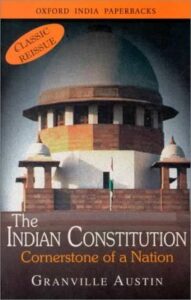
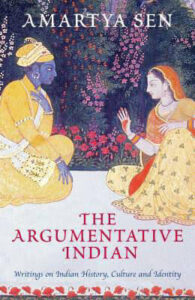
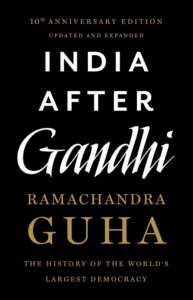

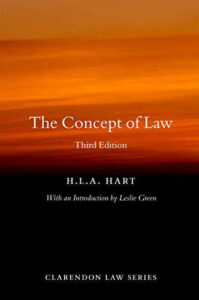



0 Comments